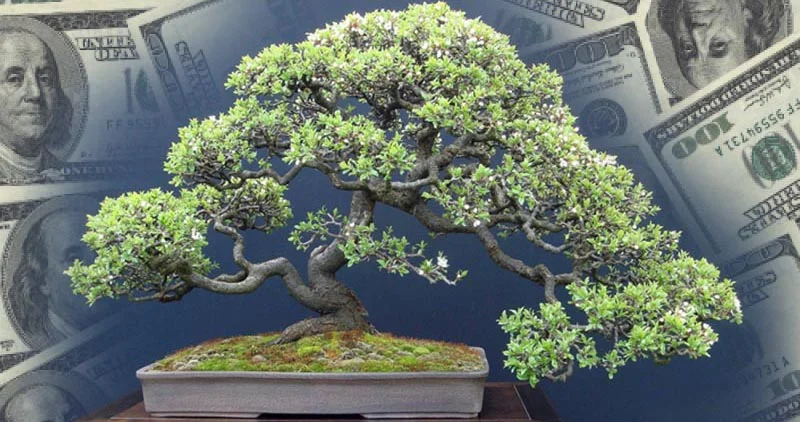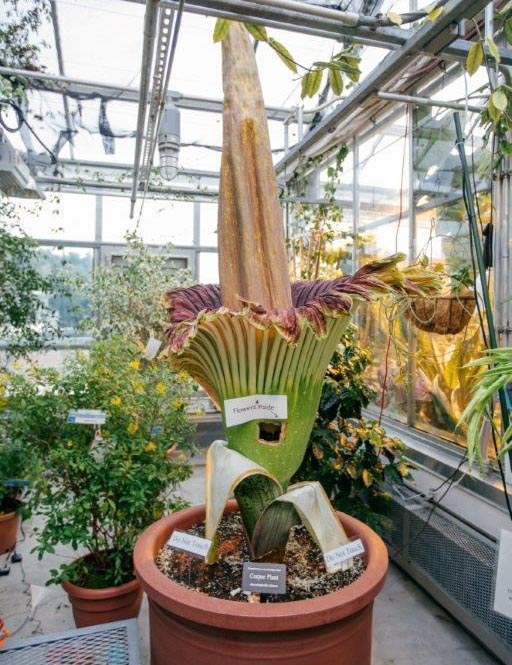Why Steal A Rare Bonsai Tree?
Thieves are increasingly going after the tiny, ornamental plants that increase in value the older they get. But they forget that once they take them, they have to figure out how to keep them from dying.
By Jessie Schiewe
It’s not even about the money.
The rare bonsai tree that was stolen from David Fukumoto last September was worth thousands of dollars, but it’s not like he ever would have considered selling it.
Planted in 1962 back when Fukumoto and his wife were newlyweds living in an apartment in Honolulu, it was the first tree he ever owned and the one that sparked his lifelong interest in bonsai.
And after all the love and care Fukumoto poured into the plant, losing it hurt.
“It kind of hit me just as hard as if somebody kidnapped my daughter,” he told OK Whatever.
Fukumoto is the owner of Fuku-Bonsai, a nursery and cultural center on the Big Island of Hawaii that’s been around since 1973. He is also one of a growing number of international bonsai owners who has become prey to thieves looking to make a quick buck.
The problem is especially rampant in Japan and Hawaii where the art form is most popular, but bonsai thefts have also happened on the mainland in California, Florida, and even Brooklyn.
And it’s a problem that’s been going on for a while. People have been stealing rare bonsai trees since at least the 1960s.
Thieves are attracted to the ornamental plants, which can live for hundreds if not thousands of years. The older they get, the more valuable they become. In 1962, a stolen 45-year-old bonsai tree was valued at $2,000. Today, it would be worth almost $17,000.
Unless you take a super unique-looking bonsai, they’re also relatively easy to steal. Nurseries aren’t known for having the tightest security, and even if you get caught with a stolen tree, it can be hard to prove. Unlike diamonds or fine art, which often have inscriptions or signatures, identifying agriculture is a lot more difficult to do.
Fukumoto has had his share of stolen bonsai over the years. Before the most recent theft, a flash flood wiped out the entirety of one of his greenhouses, washing away more than $120,000 of plants.
“The word got out that there was a bunch of free bonsai available and I heard that there was a traffic jam down stream,” said Fukumoto who started a Go Fund Me to help cover the costs of his losses. “The thing is, those plants were stolen.”
David Fukumoto and his wife Myrtle moved to the Big Island in 1973 to start their bonsai nursery.
(Photo: Fuku-Bonsai)
With help from police and informants, he’s been able to track down a few of the kidnapped bonsai, though none of them were in great shape. If the flood didn’t damage them, then being in the hands of a non-bonsai expert surely did them in. Bonsai are finicky and delicate, and can only survive under specific circumstances.
When one of his Japanese black pines that had been lost in the flood was found in a local man’s apartment, Fukumoto’s excitement was short-lived. The bonsai had already died.
Mistreating plants in such a way, he said, is “really terrible.”
Earlier this year, when seven rare bonsai — including a 400-year-old Shimpaku juniper worth $90,000 — were stolen in Japan, the couple that had owned them weren’t even mad because they were too busy worrying about their plants’ health. "I want whoever took the bonsais to make sure they are watered,” Fuyumi Iimura, the wife of the bonsai master who crafted the trees, told CNN. "They can live forever — even after we're gone — if they receive the proper care."
Unfortunately, most people who steal the plants are novices, taking them not because they have green thumbs, but rather sticky fingers. Fukumoto suspects that a lot of them are given as “special gifts” to loved ones or sold “for drug money.”
Most stolen bonsai sales in Hawaii tend to take place at farmers markets or roadside stands, with the thieves either selling them directly to the customer or to a vendor who buys stolen commodities.
That is, if the thieves can sell them at all. As “high profile” bonsai thefts continue to happen in Hawaii, protocols have been put in place to deter and warn others about stolen plants. Wanted posters are printed in newspapers and taped on the walls of nurseries, garden shops, and airports. Rewards are often offered in return for information, and old-fashioned telephone trees are utilized to spread the word about new thefts. Hawaii County even hired a full-time agricultural investigator to track stolen plants last year.
Bonsai owners have also developed systems to keep better track of their stock and make it easier to identify them if they ever go missing.
“All of our plants are photographed as soon as they reach a certain quality just so that we have a record of it,” Fukumoto said. “So if [bonsai thieves] are stupid, they try to hide [the plant]. If they’re a little smarter, they throw it in the ocean.”
At Grove Way Bonsai in Hayward, California, which has been around since 1972, an employee likened bonsai theft to stealing a famous painting.
“I think it’s quite stupid because if you steal an expensive tree, everyone knows that tree. It’s almost like art. Everyone knows that piece of art, and if it’s valuable, then I don’t know how that person is going to sell it.”
And you don’t want to be caught with someone else’s rare bonsai plant. Stealing one is a felony, and because of their monetary value can qualify as grand theft in a number of states. If you’re caught in Hawaii with a stolen bonsai worth more than $750, you face as many as five years in prison.
Still, a conviction is often cold comfort to the people who’ve lost their beloved bonsai. Iimura equated the pain of losing hers to the feeling of having one’s limbs cut off.
"We treated these miniature trees like our children," she said. "There are no words to describe how we feel.”
Joe Cain, a nursery owner outside of Tampa, Florida, had two bonsai worth $7,500 stolen last May. When he realized they were gone, he had a visceral reaction.
“Those things were starting to put out berries. They were so happy,” Cain told Fox 13 News. “It just makes me sick because they’ll put them inside and they’ll start dying.”
To prevent future thefts, bonsai owners have had to up their security measures, installing cameras on their properties and in some cases, even doors. At Artisan Bonsai, the nursery Cain owns, they’ve put up barbed wire on the fences and hired an armed guard overnight.
These extra expenses can be a pain for owners already dealing with the loss of their most valued possessions and any damages made to their properties. Feelings of vulnerability, helplessness, anger, and frustration often complicate the situation, too. That, combined with the knowledge that they’ll probably never see their leafy friends again — at least not alive — is enough to make anyone’s heart break.











Big-box stores are fooling us into buying visually enhanced plants. Why do we fall for it?